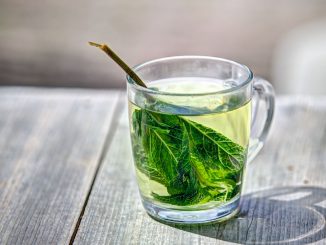
How many things do you know about your skin? Find out the most important 10 essential skin facts that you probably haven’t heard about!
Skin is your largest organ. Your skin is the largest organ you have, followed by your liver. The skin weighs about 16% of your body weight.
Not all your skin has the same thickness. eyelids, for example, have the thinnest layer of skin, not exceeding 0.05 millimeters. The palms and soles, on the other hand, make for the thickest skin, which is about 1.5 millimeters.
It consists of 3 layers. Your skin consists of the following layers: epidermis, dermis and hypodermis. The hypodermis is the inner layer and is made up of only fat and collagen. The dermis is the middle layer, and is responsible for 90% of the skin thickness. The epiderm is the superficial layer of the skin and acts as a barrier that protects the body from the outside environment.
It is the skin that helps your body adjust its temperature. When the body is overheated, the blood vessels in the skin dilate to facilitate the release of heat from the body. Also, when it is cold outside, the blood vessels in the skin contract to keep the heat.
The way you sleep has a direct impact on your skin. If you are used to sleeping with your face right on a pillow, you are more likely to get wrinkles. Replace the pillow with a silk or satin one, in order to prevent wrinkles.
Scars are caused by lesions in the dermis. If lesions on the epidermis heal completely and leave no signs on the skin, when it comes to lesions in the dermis, they turn into scars. Even though the skin cells normally die and are replaced by others, collagen cells do not regenerate and do not allow the dermis to heal.
There are 2 types of glands at skin level. The sebaceous glands and the sweat glands. The sebaceous glands havethe role of sebum secretion, ie fat, which has emollient capacities, protecting the skin from harmful factors and preventing dehydration. The sweat glands, on the other hand, contain sweat so that they regulate the body temperature and keep the skin hydrated. Through sweat, the body removes water and various salts.
Skin cells die at a crazy rate. About 30,000 to 40,000 cells in the skin die, every single minute of your life. Of course, when you use skin exfoliating products, these figures increase.
Acne is the most common skin disorder. 85% of the world’s population has, at some point, acne problems, this being the most prevalent dermatological condition.
Skin cancer is the most serious skin condition. Melanoma is the most dangerous skin cancer type. That’s why it’s very important to monitor your epidermis for any new formation that appears on the skin. As soon as you notice a mole that seems suspicious or a wound that has not healed within a 4-week period, it is necessary to visit a dermatologist urgently. Any early diagnosed dermatological condition is easier to treat, so you have to be very careful.



Leave a Reply